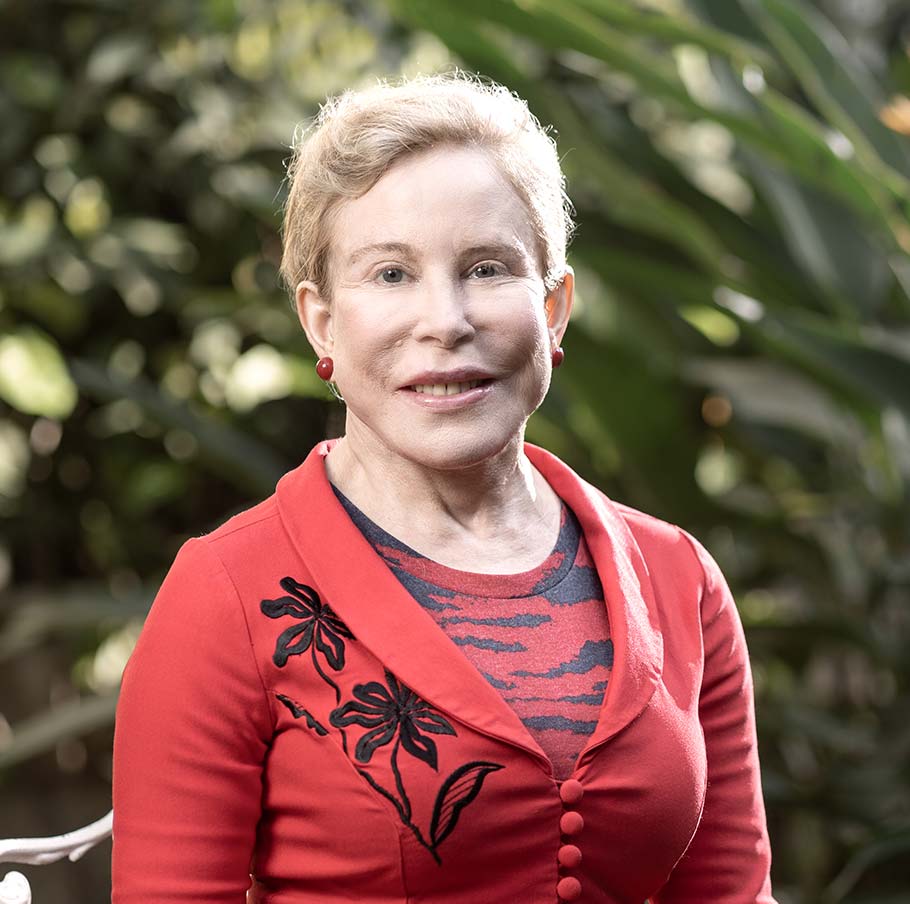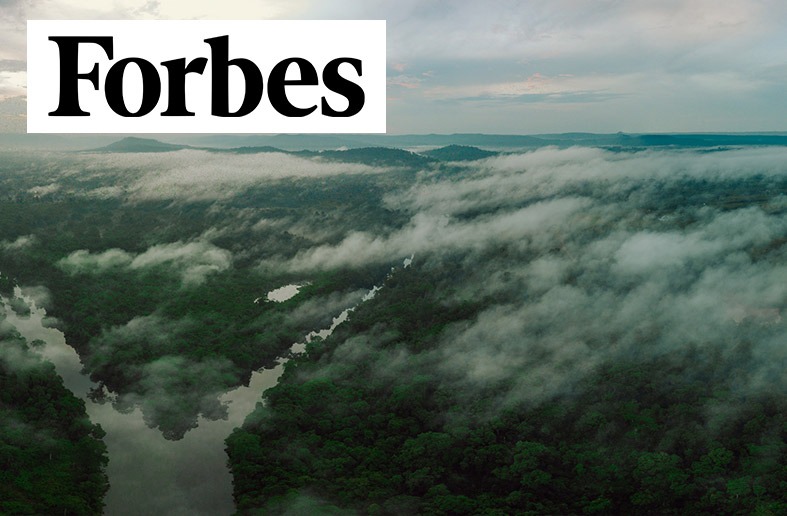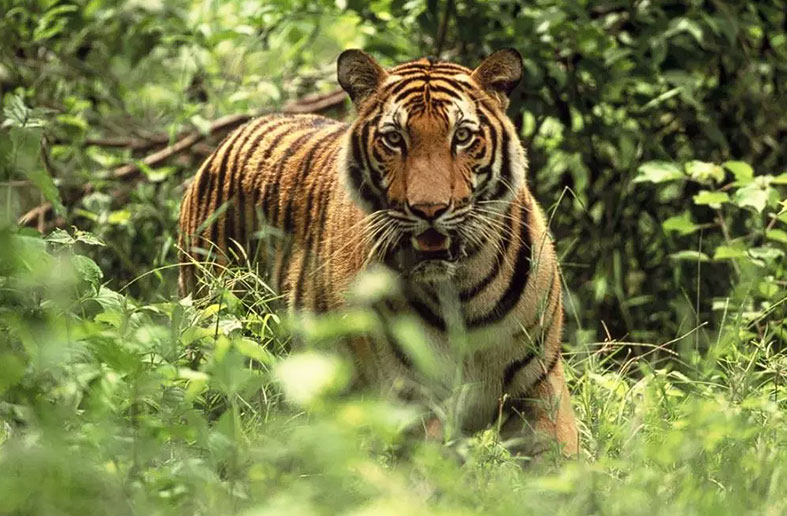Dr. SUWANNA GAUNTLETT
Founder and CEO
Dedicated her life to helping governments protect their ecosystems for tackling Climate Change, Dr. Suwanna Gauntlett has set the trend for a new generation of direct-action conservationists. Suwanna has designed, implemented, and supported bold, front-line conservation programs to protect threatened rainforests, save endangered wildlife populations, and directly address the causes of poverty in the tropical belt.
Originally from San Francisco, Suwanna grew up in Brazil and Europe. A formative experience with a jaguar tortured by poachers in the Brazilian rainforest sparked her early connection to the environment. After pursuing her undergraduate, master’s, and doctorate degrees in France and Switzerland, she began consulting for wildlife conservation organizations, assisting them with strategic planning for direct protection to wildlife in danger.
Suwanna teamed up with Steven Galster to save the Amur (Siberian) Tiger in the Russian Far East by creating, training and equipping a specialized ranger team. In only five years (1995 – 2000) the Amba patrols reduced rampant poaching by 80 percent and intercepted Tiger traffickers smuggling pelts into China. As a result, the Tiger population rebounded from only 80 individuals in 1994 to more than 400 individuals by 2000.
Suwanna responded to the call for help from the Wildlife Conservation Society of India to reverse the drastic decline of the Olive Ridley turtle along the coast of Orissa where 40,000 cadavers were stuing the coastline due to industrial fishing boats coming to close to the coast in contravenance of the National Marine Law.
Suwanna and her team organized marine law enforcement to intercept the fishing boats and impound them when found too close to the coast. Results were immediate-mother turtles coming to mate and nest along the coast were no longer stopped by the industrial nets. This brought back nestings to 600,000 in 1999 and over 1 million in the year 2000, from an all-time low of 8,700 in 1998.
1998 – 2004 – Ecuador
Responding to the Ecuadorian government’s international appeal for help in 1998, Suwanna assisted with the surface increase of the Galapagos Marine Reserve, expanding the boundaries from 5 to 40 nautical miles.
The team provided technical assistance, training, equipment and infrastructure to conduct high seas law enforcement operations to stop industrial fishing boats from coming into the Marine Reserve boundaries and decimating the wildlife inside.
1997 – 1998 – Myanmar and Thailand
Suwanna Gauntlett teamed up with Steven Galster to decide on an effective strategy to bottle-neck the Southeast Asian wildlife trade supplying China’s black market. They targeted three countries of the Indo Burmese Peninsula: Myanmar, Thailand and Cambodia.
2000 – Cambodia
Suwanna launched the Cambodia Conservation Program, continuing the strategy of reducing the Southeast Asian wildlife trade supplying China’s black market. Cambodia was chosen because it had a very large surface of rainforest and rampant wildlife trafficking.
She began by partnering with the Forestry Administration to conduct a country-wide wildlife trafficking assessment and evaluation of the strengths and weaknesses of the Special Forestry Task Forces in charge of stopping illegal logging. Based on the findings of the assessment, Wildlife Alliance designed and delivered a law enforcement training program for the Special Forestry Task Forces and the Royale Gendarmerie Khmer.
As part of the training, Suwanna conducted two sting operations with them that resulted in seizure of seven live tigers.
The most notable result of this training was the creation of the first wildlife law enforcement unit in the country and in Southeast Asia, the Wildlife Rapid Rescue Team, WRRT. With judicial authority to arrest smugglers and seize trafficked wildlife across the country, the unit started operations in July 2001. By 2021, the unit has arrested 7,054 Illegal wildlife traders, seized 72,787 live wildlife, confiscated 18.5 tons of bushmeat and body parts.
2000 – 2010
Partnering also with the Ministry of Environment, Suwanna and her team built the capacity of government ranger teams for protection of Bokor National Park. Wildlife Alliance continued ranger support for ten years, until 2010, including building the National Ranger Center, developing the National Ranger Training curriculum, and delivering training to 770 park rangers across the country.
2002
Based on successful partnership with the government, Wildlife Alliance was requested to provide technical assistance in the Cardamom Rainforest Landscape which was being decimated by forest fires and real estate speculation.
35 to 40 fires were burning the forest every day to clear land for real estate deals. 37 elephants and 28 tigers were killed in just a few months. Suwanna helped the Department of Forestry organize ranger teams to address the urgency of the situation. She started building political will at all levels of government to bring illegal activities under control.
Suwanna worked closely with the provincial governor to stop his district governors from selling state forests under the table. She appealed to the Ministry of Agriculture, Forestry and Fisheries for strong intervention to return grabbed land back to State. She worked with three ministries to resolve land grabbing and create a long-term land management plan. As part of the management plan, village zones were clearly delineated to allocate land for community livelihoods. Outside the villages, forestland was declared strictly protected and visible demarcation posts were installed on the ground. Thanks to persistent vigilance of the ranger teams, the 2003 zoning agreement is still enforced today, 20 years later. The rangers and Wildlife Alliance achieved together the ZERO POACHING of elephants since 2006.
2003
Suwanna worked with the Provincial Governor of Koh Kong, the Ministry of Agriculture Forestry and Fisheries and the Ministry of Land Management to create Sovanna Baitong Community Agriculture Project that aimed at stopping forest slash and burn and providing the poorest landless farmers with land ownership, access to capital and markets, and access to education and healthcare.
2004 – 2016
Wildlife Alliance worked successfully with the Forestry Administration, 5 ministries and the highest levels of government to obtain 34 economic land concessions that were threatening to destroy the Cardamom Rainforest. Mining and agro-industry exploitation permits were canceled or reduced in size, thus saving the rainforest from destruction representing more than half of the size of Yellowstone National Park.
Today, 17,478 km2 (4.3 million acres) of continuous forest have been maintained in the Cardamoms, one of the great forest conservation achievements in Asia.

Dr. Suwanna Gauntlett
Founder and CEO
In the News
Videos:




